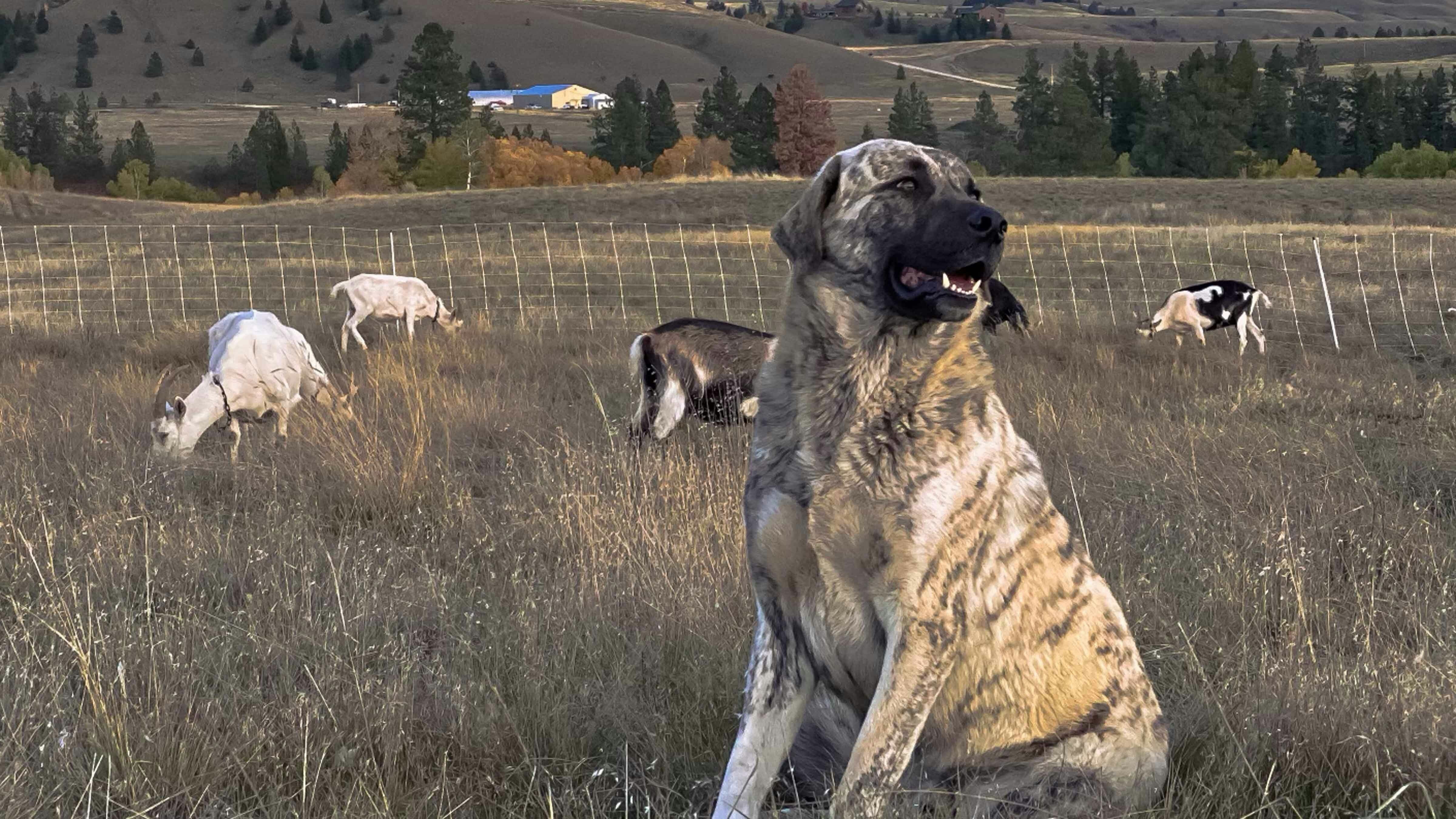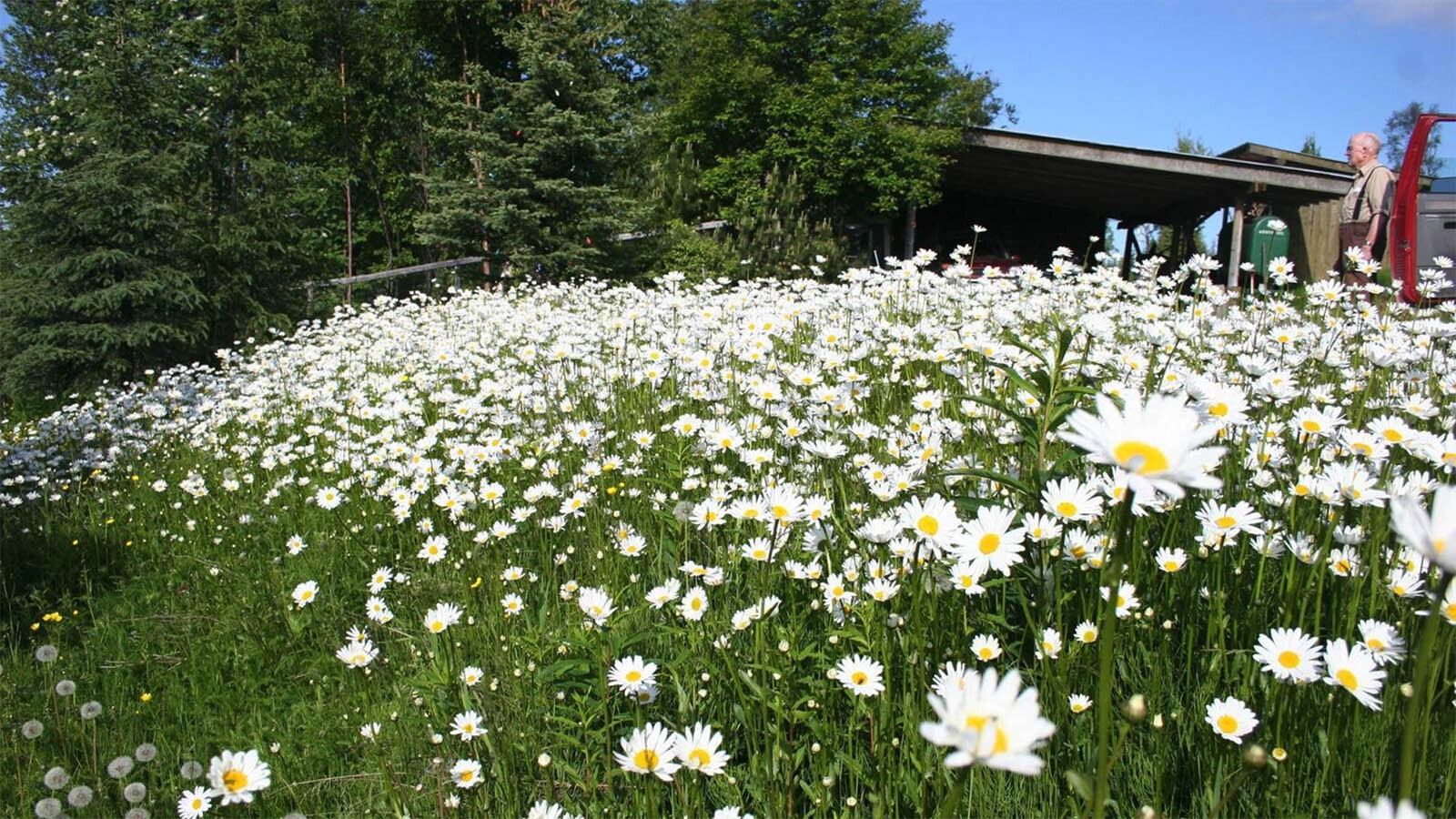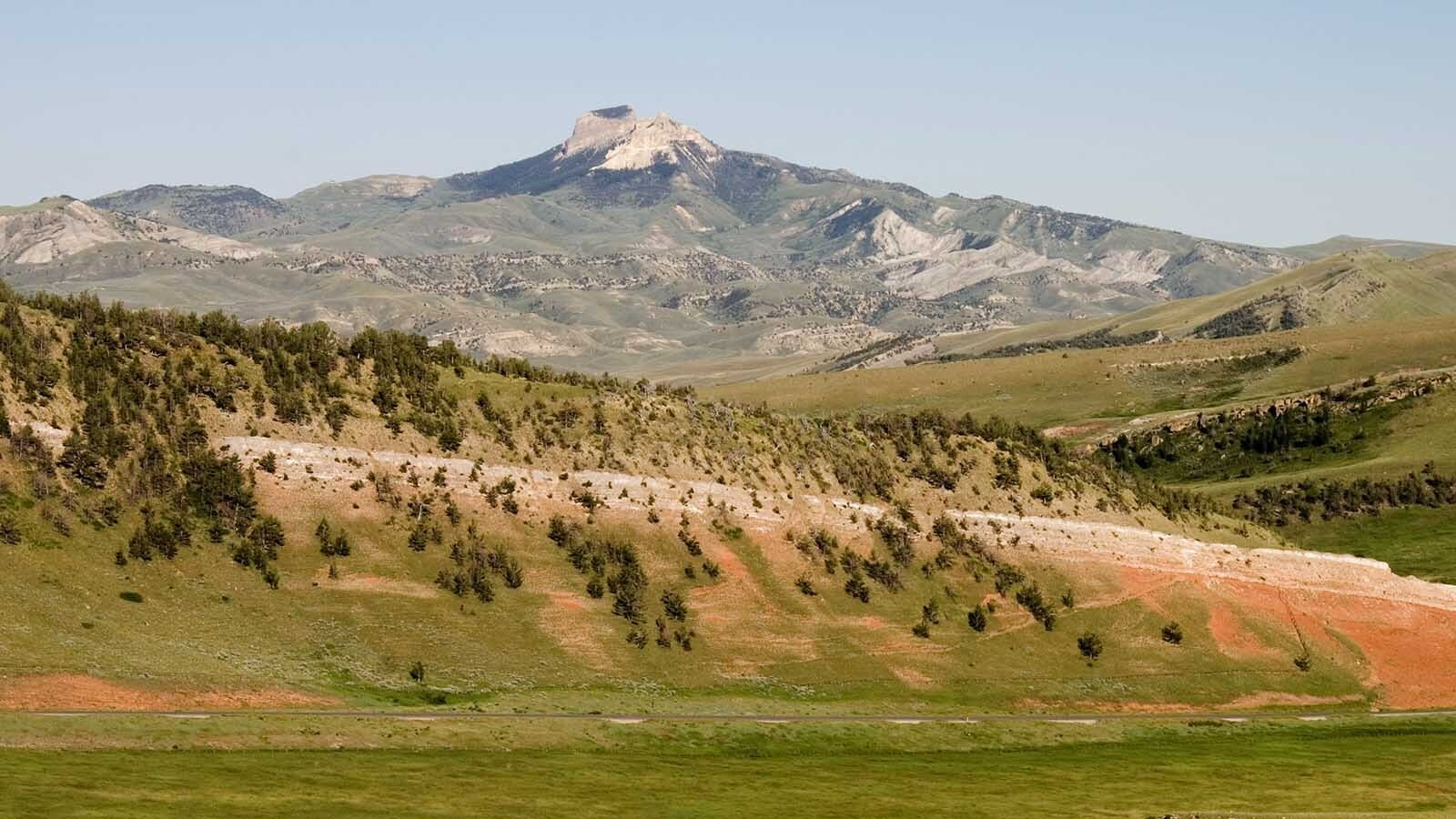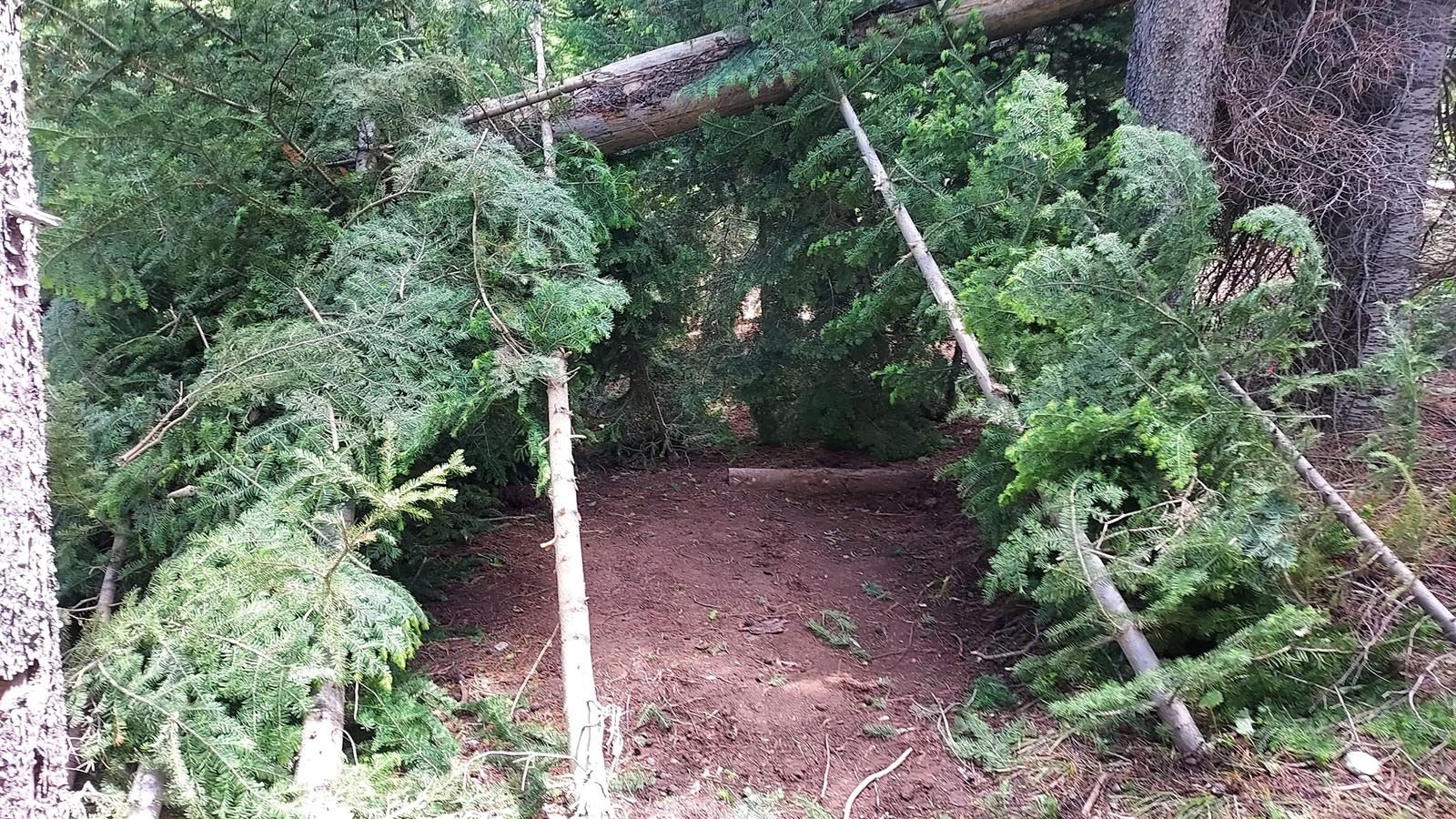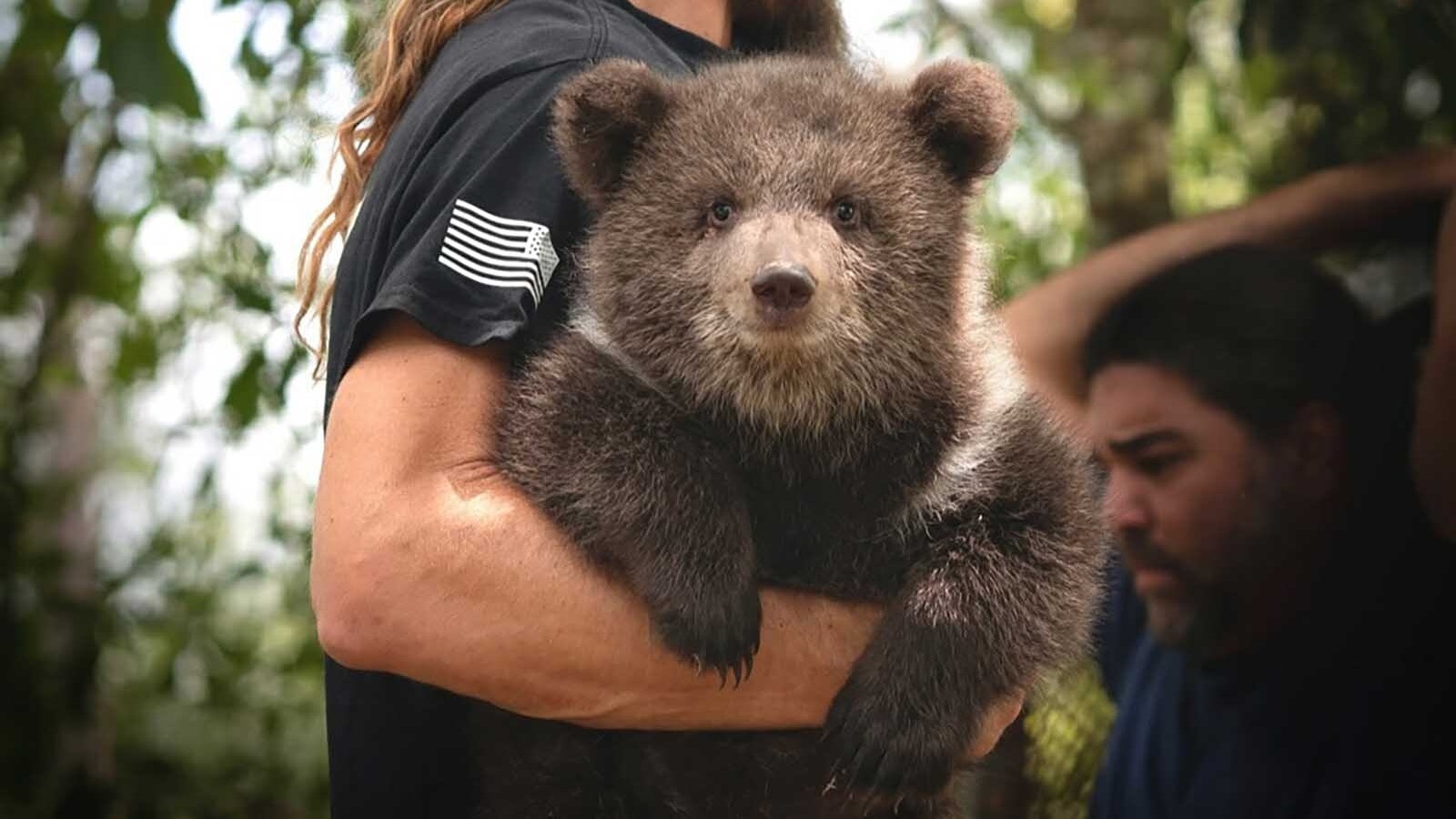Lauren Stoddard has deep respect for her Anatolian Shepherd "Cyprus," and for good reason.
"Our oldest dog (Cyprus) handled a grizzly bear by herself when she was eight months old," Stoddard, who raises livestock in remote northwestern Montana, told Cowboy State Daily.
"The bear had come in, looking at our goats as an easy meal," she said. "She ran that bear right off of our place."
Effective Guardians
Stoddard and her family raise goats, sheep and cattle on 200 acres, about two miles from the Canadian border. They now have seven Anatolians, and breed puppies to sell to other ranchers.
"Grizzlies, wolves, mountain lions, we get everything up here," she said. "Since we've had these dogs, we've had zero losses to predators."
Stoddard said she was saddened to read about two dogs killed by wolves recently in northern Colorado near the Wyoming state line, and said ranchers here might want to consider Anatolians or similar guard dog breeds.
"If they had a couple of good livestock guardian dogs, they might not have lost those cattle dogs," she said.
Guard dogs are great for protecting livestock on smaller spreads, Wyoming Rancher Pat O'Toole told Cowboy State Daily. His family runs the Ladder Ranch. It's a cattle and sheep operation straddling the Wyoming-Colorado State line roughly 50 miles north of Steamboat Springs, Colorado.
It's not far from where the dogs were killed in Colorado. O'Toole recently told Cowboy State Daily that he's worried about the wolves already in that state, as well as Colorado's plans to reintroduce more wolves this year.
A wolf was recently spotted on a section of the Medicine Bow-Routt National Forest in Colorado, where his family runs cattle in the summertime, O'Toole said on Tuesday.
The Ladder ranch has used livestock guard dogs for decades including some Eastern European breeds similar to Anatolians, O'Toole said.
"They're highly effective for protecting sheep," he said of guard dogs. "But with the cattle when they're dispersed across the landscape -- they're not as effective. Its just too much country to cover."
Millennia Of Protective Instincts
There are numerous livestock guard dog breeds to choose from, O'Toole said, and some breeds go back thousands of years.
"Guard dog breeds are cultural. Every culture has its own breed of guard dogs," he said.
"They're different from herding dogs" (like "Cisco" the border collie that was killed by wolves in Colorado), O'Toole added. "Guard dogs have a completely different mentality."
Anatolians come from Turkey, where they've long been used to protect herds from wolves and brown bears, Stoddard said.
They're big dogs, she said. They average about 125 pounds, but can get up to 150-160 pounds.
And woe to anything that gets caught in their jaws.
"They have one of the highest bite forces of any dog breed," Stoddard said. "Even more than pit bulls. An Anatolian can generate a bite force of 700 psi (pounds per square inch)."
Taking The Fight To The Enemy
Anatolians are gentle with people, including children, Stoddard said. But when it comes to predators, all bets are off, and they have a reputation for taking the fight to the enemy.
"They're bold and authoritative. They will go out to meet the threat," she said.
While Cyprus' solo charge at the grizzly was admirable, it's wasn't the best tactic, Stoddard added. Even with a breed as large and fierce as Anatolians, a single dog is more likely to be killed.
The dogs work best in teams, and can be utterly merciless when dealing with wolves, she said.
"They will tag-team the predators," she said. "They will grab a hold of a wolf from different sides and play tug-of-war with it."
Training Needed
For those wanting something a little less high-octane than Anatolians, Great Pyrenees are great protectors, particularly for goats and sheep, said O'Toole and Kembrough Chesson.
Chesson raises dairy goats near Kalispell, Montana, in an area frequented by grizzlies and mountain lions.
"This is the area where they (wildlife wardens) tend to drop off the bears that were misbehaving and had to be relocated," she said.
So far, her two Pyrenees have been able to discourage bear attacks by their mere presence, Chesson said.
"They (the grizzlies) will just move on to the next place," she said. "Im more worried about the mountain lions, because they're so quiet."
The dogs need to start training when they're young, she added.
"I think some people can be disappointed if they buy a livestock guardian dog, but don't actively train it, so the dog just ends up sleeping on the porch," she said. "And when they're juveniles, they have to be corrected for things like trying to roughhouse chickens, goats or sheep."
O'Toole said that dogs bred to take on wolves and bears can get aggressive with other dogs on a ranch if their owners aren't careful.
He added that guardian dogs such as Pyrenees have a deep instinct for bonding, be it with the herds they are charged to watch over, or a human family.
"Some of the puppies we've bred, we've sold to people in town," he said. "They are great family guardian dogs, very loyal."

